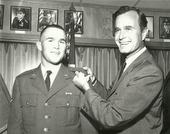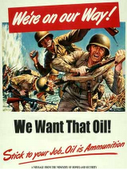
Just a reminder, Tonight, October 23rd, PBS will be airing "Showdown With Iran" So instead of suffering through Dancing with the Stars, boring freakish House, Terrorist hunters on The Unit, or the fattest Loser..educate yourself. Give your brain some food, too. Watch PBS tonight.
As Iraq descends into chaos and civil war, FRONTLINE examines the rise of its neighbor --Iran -- as one of America's greatest threats and most puzzling foreign policy challenges.
Through Interviews with key players on both sides, FRONTLINE traces the tumultuous history of U.S.-Iran relations since 9/11 -- from unprecedented early cooperation in Afghanistan to the growing crisis over Iran's nuclear ambitions and Tehran's open threats to drive America out of the Middle East.
October 23,2007 press release,
"You will not find a single instance in which a country has inflicted harm on us and we have left it without a response," deputy head of Iran's National Security Council Mohammad Jafari tells FRONTLINE in his first television interview. "So if the United States makes such a mistake, they should know that we will definitely respond. And we don't make threats."Same Players. Different Scandal.
There are increasing signs that the Bush administration is seriously considering military action before it leaves office if Tehran continues to defy U.N. demands that it cease enriching uranium for its nuclear program -- a program the Iranians insist is for peaceful purposes. "The president has said repeatedly that it is unacceptable for Iran to have nuclear weapons," former U.N. Ambassador John Bolton (neocon WARMONGER) tells FRONTLINE. "If action is not taken in terms of regime change or, if need be, the use of military force, the question of when Iran achieves nuclear weapons is entirely in Iran's own hands. And that is extraordinarily undesirable."
But Richard Armitage, President Bush's former deputy secretary of state, warns, "It would be the worst of worlds for an outgoing administration to start a conflict."
After 9/11, the Bush administration hoped to drive a wedge between Iran's people and their Islamic rulers by installing democracies on two of Iran's borders. "If things had gone better in Iraq," says Hillary Mann, the Iran expert on the National Security Council during the run-up to the war, "then yeah, I think Iran was next."
"I think Iran is more secure now, courtesy of the United States," Bolton says. "We have removed the Taliban regime from Afghanistan, which they viewed as a mortal threat. We have removed Saddam Hussein in Iraq, which they viewed as a mortal threat." Read on...








No comments:
Post a Comment